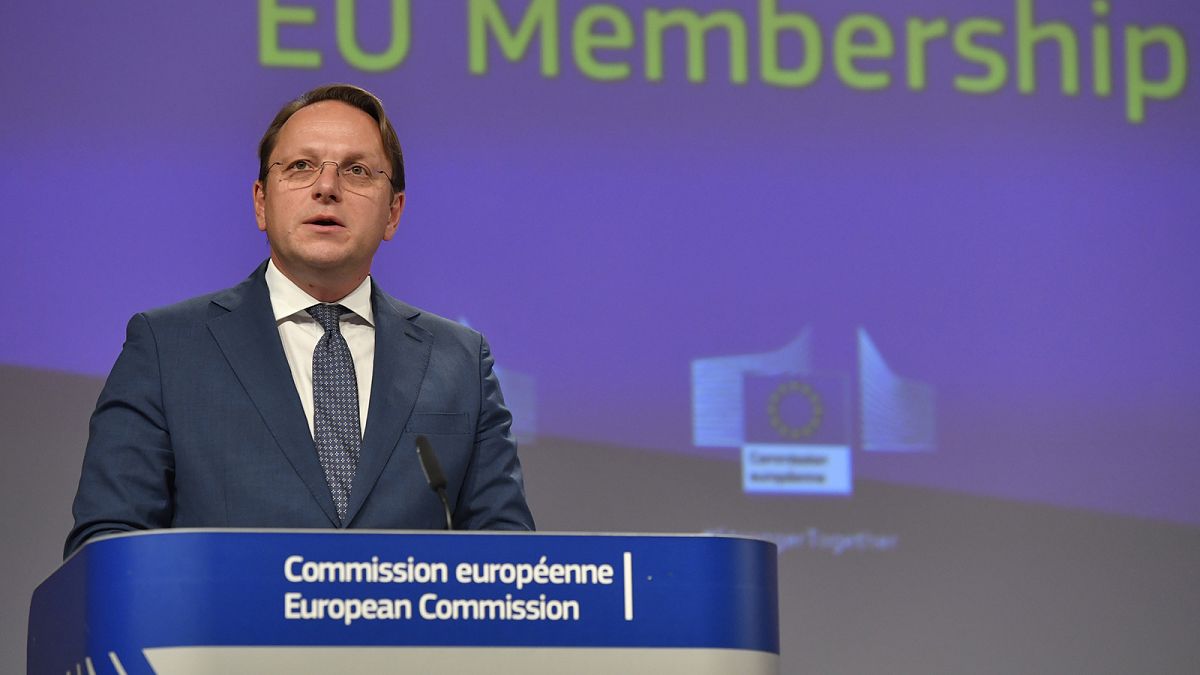Albanian and Macedonian PMs Rama and Kovačevski were welcomed to Brussels this week by Commission President Ursula von der Leyen as both countries began accession negotiations. Neighbourhood and Enlargement Commissioner Olivér Várhelyi provides Euronews with his perspective.
EU membership candidates Albania and North Macedonia have received the green light from all 27-member states to begin accession negotiations.
Following Monday's announcement, the leaders of both countries were invited to Brussels on Tuesday to discuss what Czech Prime Minister Petr Fiala described as "the next steps on their path to the EU".
"With this, we can move to the next stage in the accession process for the two countries," European Commissioner for Neighbourhood and Enlargement Olivér Várhelyi told Euronews. "[This means that] we can now start the accession negotiations as we speak."
In addition to North Macedonia and Albania, four other Western Balkan countries are at various stages of their accession process. Serbia and Montenegro have opened their accession negotiations and have meanwhile closed several thematic chapters out of 35 in total.
Bosnia and Kosovo are considered to be potential candidate countries, having signed their Stabilisation and Association Agreements, but the negotiations have since stalled for both.
Ukraine and Moldova were given candidate status at the most recent European Council session in Brussels, on 23 June.
In addition, Turkey is also a candidate, having filed its application to join the European Economic Community, the predecessor of the EU, in 1987, but its chances of becoming a full-fledged member are considered to be almost non-existent.
"My sense now is that there is much more openness to welcome new EU members, but of course these new members will have to convince the current members that they are ready not only to comply but to deliver on all the requirements," Várhelyi said.
"If Europe wants to live in security, prosperity and stability, it has to have its neighbourhood, the Western Balkans, fully integrated. This war in Europe, Russia's aggression against Ukraine has proved the value of this" he added.
This historic development comes as North Macedonia voted to accept the so-called French proposal as a means to end the veto from its neighbour Bulgaria, which had blocked the start of accession talks since 2020.
Sofia maintains that the Macedonian language is a dialect of Bulgarian and that the two countries have a common, joint history. North Macedonia claims that its language and history are distinct from those of its neighbour.
Prior to the Bulgarian veto, North Macedonia was subject to a Greek block that lasted for more than a decade and ended with the signing of the Prespa Agreement in 2019.
